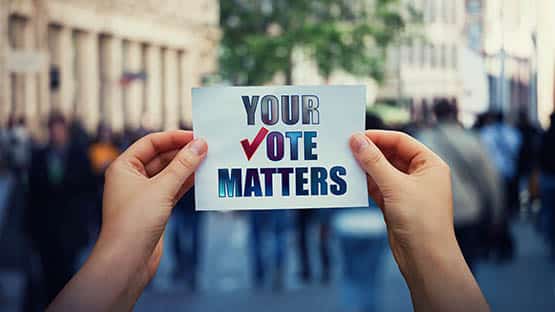
A new poll reveals that nearly six in 10 American adults think that artificial intelligence (AI) tools will increase the spread of false information in the 2024 election.
The poll from The Associated Press-NORC Center for Public Affairs Research and the University of Chicago Harris School of Public Policy, revealed that, by comparison, 6 percent think AI will decrease the spread of misinformation while one-third said it will not make much of a difference.
“Look what happened in 2020 — and that was just social media,” 66-year-old Rosa Rangel of Fort Worth, Texas told The Associated Press.
Rangel, a Democrat, said she thinks AI will make things even worse in 2024.
Only 30 percent of American adults have used AI chatbots or image generators and 46 percent have heard or read at least some about AI tools. But, a broad consensus states that candidates should not be using AI.
Eighty-three percent said it would be bad for candidates in the 2024 presidential election to create false or misleading media or political ads, 66 percent said it would be bad for them to edit or touch-up photos or videos for political ads, and 56 percent said it would be bad for candidates to answer voters’ questions via chatbot.
Majorities of Republicans and Democrats agree on AI in next year’s election, including 85 percent of Republicans and 90 percent of Democrats agree it would be bad for candidates to create false images or videos. Fifty-six percent of Republicans and 63 percent of Democrats said it would be bad for candidates to use AI to answer questions.
AI has already been used in the Republican presidential primary. The Republican National Committee released an entirely AI-generated ad in April 2023 to show the future of the country if President Joe Biden is reelected. Fake but realistic appearing photos showed boarded-up storefronts, armored military patrols in the streets and waves of immigrants creating panic. In small letters was it disclosed that the ad was generated by AI.
Florida Gov. Ron DeSantis, a Republican, used AI in his GOP nomination campaign. The ad contained AI-generated images to make it look as if former President Donald Trump was hugging Dr. Anthony Fauci, an infectious disease specialist who oversaw the nation’s response to the COVID-19 pandemic.
Never Back Down, a super PAC supporting DeSantis, used an AI voice-cloning tool to imitate Trump’s voice, making it seem like he narrated a social media post.
The Federal Election Commission is considering a petition encouraging regulation of AI-generated deepfakes in political ads before the 2024 election.
According to the poll, Americans are 46 percent more likely to consider news media for information about the election over AI chatbots. They will consult friends and family at a 29 percent rate and social media at 25 percent.
Biden signed an executive order last week to guide the development of the rapidly progressing technology of AI in the United States, and requires the industry to develop safety and security standards and directs the Commerce Department to issue guidance to label and watermark AI-generated content.
Between October 19 and 23, 2023, NORC drew a sample of 1,017 adults who were polled.










